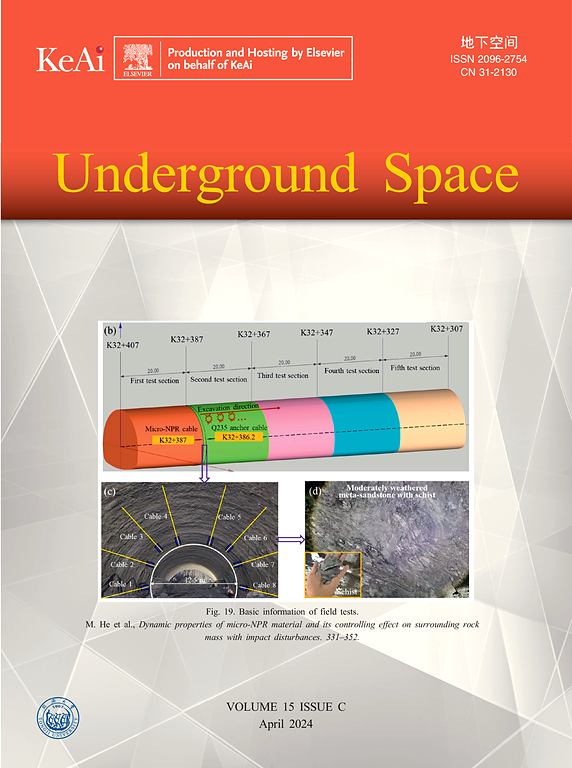Land-sea integrated suitability evaluation of underground space based on Pythagorean fuzzy Bayesian network
IF 8.3
1区 工程技术
Q1 ENGINEERING, CIVIL
引用次数: 0
Abstract
Scientific development and utilization of urban underground space is an inevitable choice for sustainable urban development. However, in the previous suitability evaluation of underground space in coastal cities, the development potential of underground space in the sea area is not considered. Therefore, this study takes the coastal zone of Jiaozhou bay as the study area, establishes evaluation index systems for land and sea areas separately, and explores a new model for evaluating the suitability of underground space in coastal cities by integrating land and sea. In addition, an underground space suitability evaluation model based on the integration of Pythagorean fuzzy sets and Bayesian network is proposed. Firstly, the Pythagorean triangular fuzzy numbers are used to expand the fuzzy range of expert opinions. Then the Pythagorean triangular fuzzy hybrid geometric operator is used to realize the aggregation of expert opinions to solve the difficulty of obtaining the node conditional probability table by the traditional Bayesian network model of underground space suitability evaluation. Finally, the Pythagorean fuzzy Bayesian network is used as an evaluation tool to carry out the underground space suitability evaluation. Based on the evaluation result and urban planning, the overall planning and functional zoning guidelines for underground space development in the study area are given and the suitability and engineering construction difficulty analysis on the second subsea tunnel of Jiaozhou bay is conducted. The research results can provide a valuable reference for the coastal city planning department to develop and utilize underground space.
基于毕达哥拉斯模糊贝叶斯网络的地下空间陆海综合适宜性评价
科学开发利用城市地下空间是城市可持续发展的必然选择。然而,在以往的沿海城市地下空间适宜性评价中,并未考虑海区地下空间的开发潜力。因此,本研究以胶州湾海岸带为研究区,分别建立陆域和海域评价指标体系,探索陆海一体化评价沿海城市地下空间适宜性的新模式。此外,提出了一种基于毕达哥拉斯模糊集与贝叶斯网络相结合的地下空间适宜性评价模型。首先利用毕达哥拉斯三角模糊数扩大专家意见的模糊范围;然后利用毕达哥拉斯三角模糊混合几何算子实现专家意见的聚合,解决传统贝叶斯网络地下空间适宜性评价模型获取节点条件概率表的困难;最后,利用毕达哥拉斯模糊贝叶斯网络作为评价工具进行地下空间适宜性评价。根据评价结果和城市规划,给出了研究区地下空间开发总体规划和功能分区指南,并对胶州湾海底第二隧道的适宜性和工程施工难度进行了分析。研究结果可为滨海城市规划部门开发利用地下空间提供有价值的参考。
本文章由计算机程序翻译,如有差异,请以英文原文为准。
求助全文
约1分钟内获得全文
求助全文
来源期刊

Underground Space
ENGINEERING, CIVIL-
CiteScore
10.20
自引率
14.10%
发文量
71
审稿时长
63 days
期刊介绍:
Underground Space is an open access international journal without article processing charges (APC) committed to serving as a scientific forum for researchers and practitioners in the field of underground engineering. The journal welcomes manuscripts that deal with original theories, methods, technologies, and important applications throughout the life-cycle of underground projects, including planning, design, operation and maintenance, disaster prevention, and demolition. The journal is particularly interested in manuscripts related to the latest development of smart underground engineering from the perspectives of resilience, resources saving, environmental friendliness, humanity, and artificial intelligence. The manuscripts are expected to have significant innovation and potential impact in the field of underground engineering, and should have clear association with or application in underground projects.
 求助内容:
求助内容: 应助结果提醒方式:
应助结果提醒方式:


